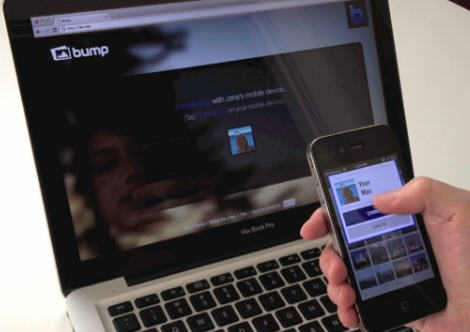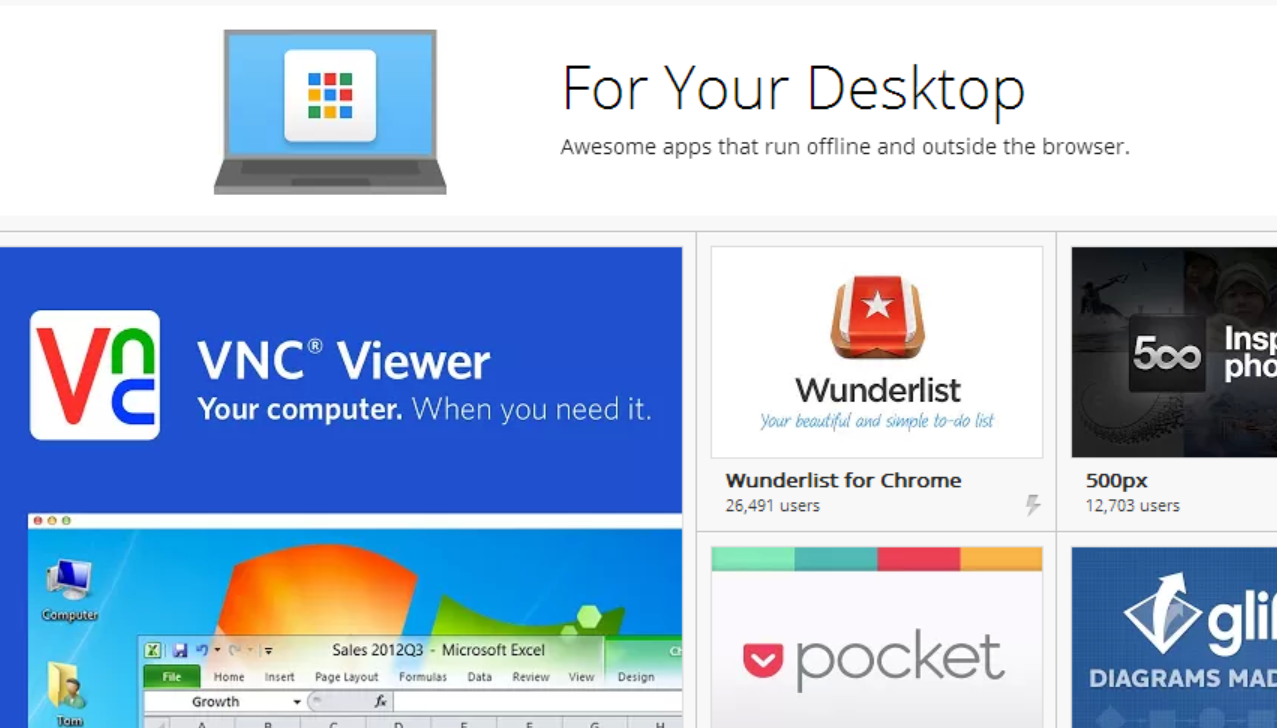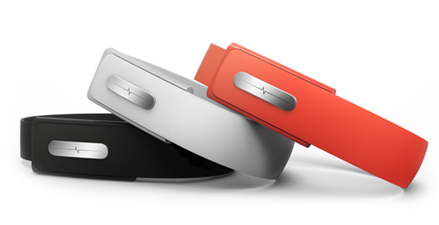
Commuters put corporate data at risk on public Wi-Fi
The results of a survey released by GFI Software show that a startling 96.5 percent of respondents use public Wi-Fi networks at least once a week to carry out work related tasks. The survey carried out by Opinion Matters asked 1,000 U.S. office workers with a tablet or smartphone who travel to and from work on a train, bus or subway about where, how and what they use their mobile devices for, and how those mobile devices have impacted the way they work both inside and outside the workplace.
More than one-third (34.2 percent) of those respondents reported they accessed public Wi-Fi at least 20 times a week during their commutes, with some employees saying they connect more than 70 times a week. This activity puts company data and passwords at risk from packet sniffing and other forms of traffic interception.

Microsoft wants you to do more to stay safe online
Microsoft is no stranger to finding itself on the receiving end of complaints about security issues that are found in Windows and its other software. But now the Redmond company is turning the tables on consumers, saying that they need to do more to secure their own computers. Microsoft's research shows that Internet users are taking fewer precautions when they're online.
This is based on declining Microsoft Computing Safety Index (MCSI) scores over the last couple of years. The MCSI system was developed in 2011 as a way to measure the security savviness of web users. The system takes into account whether users do common things such as installing anti-malware software, enabling a firewall and keeping software up to date. It also factors in whether users are aware of the importance of using secure websites, using unique passwords and taking care of the personal information they share online.

Google acquires file transfer service Bump
Today Bump becomes the latest addition to Google's portfolio. In a blog post, Bump CEO David Lieb reveals that the company has been acquired by the search giant. Bump is known for two tools -- the eponymous Bump file transfer service, and Flock for sharing photos.
But it is the Bump transfer app that is most famous, making it possible to shift files from one device to another with a gimmicky bump together -- using "a matching algorithm" rather than NFC. The blog post assures users that "Bump and Flock will continue to work as they always have for now", and it is the "for now" part of this announcement that is intriguing. Google has yet to make an announcement of its own, so it is not yet clear whether Bump's tools will live on under the same name, get rebranded, or disappear into Google's fat folds.

Twitter explains why you and your friends may see different site features
When you use Facebook and Twitter, everyone's looking at the same website and has access to the same set of tools, right? Wrong. In the case of Twitter, users who have verified accounts have access to different tools and options and the same is true for different levels of users on other sites and social networks. But it seems that even two average Twitter users could find that they have a different experience from each other on the site.
In a blog post entitled "Experiments @ Twitter", Twitter's Vice President of Engineering, Alex Roetter, says that experimenting with new features and options may mean that two people see different versions of Twitter. Roetter explains "it’s rare for a day to go by when we’re not releasing at least one experiment", referring to both the website and mobile clients.

Taste the future -- try out a cloud-based quantum computer
A taste of the future of computing is available from the Physics department of the University of Bristol. The limits of traditional computers are being reached and new technology is needed if things are going to develop at any sort of reasonable pace in the coming years. Quantum computing could just be the way ahead, and the UK university has produced Qcloud, an online quantum computer that you can play with for free.
Mere binary is too limiting, but a quantum computer is not restricted to working with 1s and 0s. Rather than the two states associated with a regular bit, a quantum bit (or qubit -- not to be confused with the Brighton Rock character, Cubitt) is capable of being in multiple states simultaneously. Forget "on" and "off", each qubit can be used to hold multiple pieces of data at the same time.

Google celebrates Chrome's 5th birthday with Apps for the desktop
Five years. That's how long it is since Chrome was unleashed on an unsuspecting world. Five years and we've already made it to version 29! There will undoubtedly be a few glasses charged in celebration, but Google is also taking this special date as an opportunity to reveal a "new breed of Chrome Apps". Head to the Chrome Web Store and you'll find a new section: For Your Desktop.
Working online with web apps has become increasingly common, but traditional desktop apps are still more popular. Now Google is looking to blur the boundaries between the two, making web apps much more like desktop software. The key thing to note here is that the apps that are found in this section do not -- after the initial download process of course - require an internet connection: they can be used in offline mode.

Amazon introduces 'All-New' Kindle Paperwhite for easy-on-the-eye reading
The Kindle Paperwhite is the most successful e-reader ever, and Amazon is updating the range with the sixth generation of the Kindle family. It's the "All-New" prefix that aids identification, but aside from the name, there's a new display, faster processor and a raft of new features for readers to use. In terms of appearance, there are few differences to its predecessor, but the display is where things are most noticeable.
New display technology gives a higher contrast ratio and Amazon claims that pages are "virtually indistinguishable from a physical book". No new version would be complete without an extra turn of speed, and the latest Kindle Paperwhite doesn't disappoint, offering a processor running 25 percent faster than in the previous model. The touchscreen has been upgraded with a tighter grid to help improve sensitivity and accuracy.

Nymi NFC bracelet brings 3-factor authentication to your devices -- for a price
We've already seen an NFC (Near Field Communication) ring and it looks like a full complement of body adornments may soon be available. The latest addition to the jewelry box is an NFC bracelet from Nymi which will, when it sees the light of day, give owners the ability to unlock their smartphone with their heartbeat.
This might sound a little wacky but, just like your fingerprint, your heartbeat has a unique pattern to it meaning it can be used to uniquely identify you. Being a bracelet, the Nymi is worn around the wrist and when you need to authenticate to unlock your phone, a simple press of the sensor on top is all it takes. Of course, you need not limit yourself to unlocking your phone. The bracelet could also be used to replace car keys, make payments in stores and to open hotel doors.

Yahoo shuts up shop in China
Yahoo China is no more. It has ceased to be. It has expired and gone to meet its maker. It is bereft of life. It rests in peace. The website now displays a goodbye message before redirecting to the news site Toaboa. As the message explains the closure comes as a result of a deal between Yahoo and the Chinese Alibaba Group.
The relationship between the two companies dates back to 2005 when Yahoo bought a 40 percent share of Alibaba. An agreement in 2012 paved the way for the closure of Yahoo China, and this had already been preceded by the closure of Yahoo Mail in the country a couple of weeks ago -- again, customers were redirected to using an Alibaba service, Alimail.

Microsoft and Google (don’t really) want to tell you more about government data requests
Sounds nice, doesn't it? Two big names have listened to the concerns of the people that matter -- their customers -- in the wake of the NSA debacle, and want to share more information with the public about precisely what information the government is asking them to hand over. If only it were that simple.
In a blog post on TechNet, Microsoft General Counsel Brad Smith reveals that both Microsoft and Google filed lawsuits back in June to try to force the government to permit them to publish details of data requested under Foreign Intelligence Surveillance Act (FISA) orders. Smith says they [the two companies] believe they have a "clear right under the US Constitution to share more information with the public".

Pressy -- an impressyve way to add a physical button to Android
I just reviewed the Moto X and absolutely loved the hands-free voice activated experience. However, sometimes I still yearn for actual buttons to push. On-screen buttons are all the rage on Android, but a new Kickstarter campaign has launched with the aim of adding a physical one to Android devices via something called "Pressy".
According to the designers, the device is "a tiny physical button that connects to your phone through the headphone jack. Connecting the Pressy Button with the free Pressy app lets you easily customize and use your favorite, everyday actions. For example, if you use your flashlight on regular basis, set a Click-combination [in] the app for turning on your flashlight and start clicking the button".

Facebook 'proposes' changes to the way it handles your data
Just a couple of days ago Facebook was in the headlines after being ordered to pay out $20m for putting user data to work in advertising campaigns. Now the site is proposing a set of changes to the documents that govern the way user data is handled as well as determining who has access to it.
At least some of the suggested changes come as a direct result of the court ruling including re-writing the Statement of Rights and Responsibilities. The new document includes a clearer explanation of the fact that in using Facebook users are granting permission for their name, profile picture and content to be used "in connection with ads or commercial content". It is good to see, however, that "when you limit your audience, we’ll respect that choice".

Skype celebrates tenth anniversary with free Wi-Fi gift to users
2003 was a good year. The UK experienced its highest recorded temperature ever, the final Lord of the Rings film was released, and iTunes was launched. It was also the birth year of Skype, the VoIP tool that is still going strong ten years down the line. Not long after having been acquired by Microsoft, Skype is celebrating its tenth anniversary by handing out free Wi-Fi to its users -- oh, and there’s a good old fashioned infographic to show what’s happened in the past decade.
One of the most impressive figure highlights in the charts is just how quickly Skype has been adopted. In just ten years, the service went from no users to 300 million. This equates to an uptake rate ten times faster than the telephone and two and a half times as fast as the cell phone. But it is not just the numbers that are impressive, the scale of Skype’s reach is mind-blowing.

I was, uh, wrong: Chromecast does what Google claims
A couple weeks ago when Google introduced its Chromecast HDMI dongle I wrote a column wondering whether it was really such a good product or simply good demoware? Now that I have my own Chromecast and have been playing with it for a few days I have to admit I was wrong. Chromecast appears to be every bit as good as Google claims. That’s not to say it’s perfect (more below) but pretty darned good.
What I really doubted was Google’s claim that the Chromecast could turn on your HDTV, switch the HDMI input, and throw content onto the big screen all in one seamless succession of events. It wasn’t that any of these tasks were especially difficult to do, but that to do them all on every HDTV would require more remote control capability than I knew existed in any current device.

Tech festival -- a long weekend in the mud shows battery life needs to improve
For me, virtually any trip out of the house means loading up on various pieces of tech. I, obviously, cannot leave the house without my phone -- my trusty HTC Sensation has been with me for two years -- but there are usually other things to consider as well. While my phone is great for picking up my emails on the move and staying in touch with people via IM, Facebook etc, it’s far from ideal for doing any work.
Depending on where I’m going, and how strong I’m feeling, there are various other pieces of kit I can take with me to make things easier. My Sony Tablet S is easier to type on than my phone, thanks mainly to its larger screen, but it’s not something I like to use for extended periods of time. I could take my laptop with me, or the MacBook Pro, which are great to work on, but rather weighty to hump from place to place.
